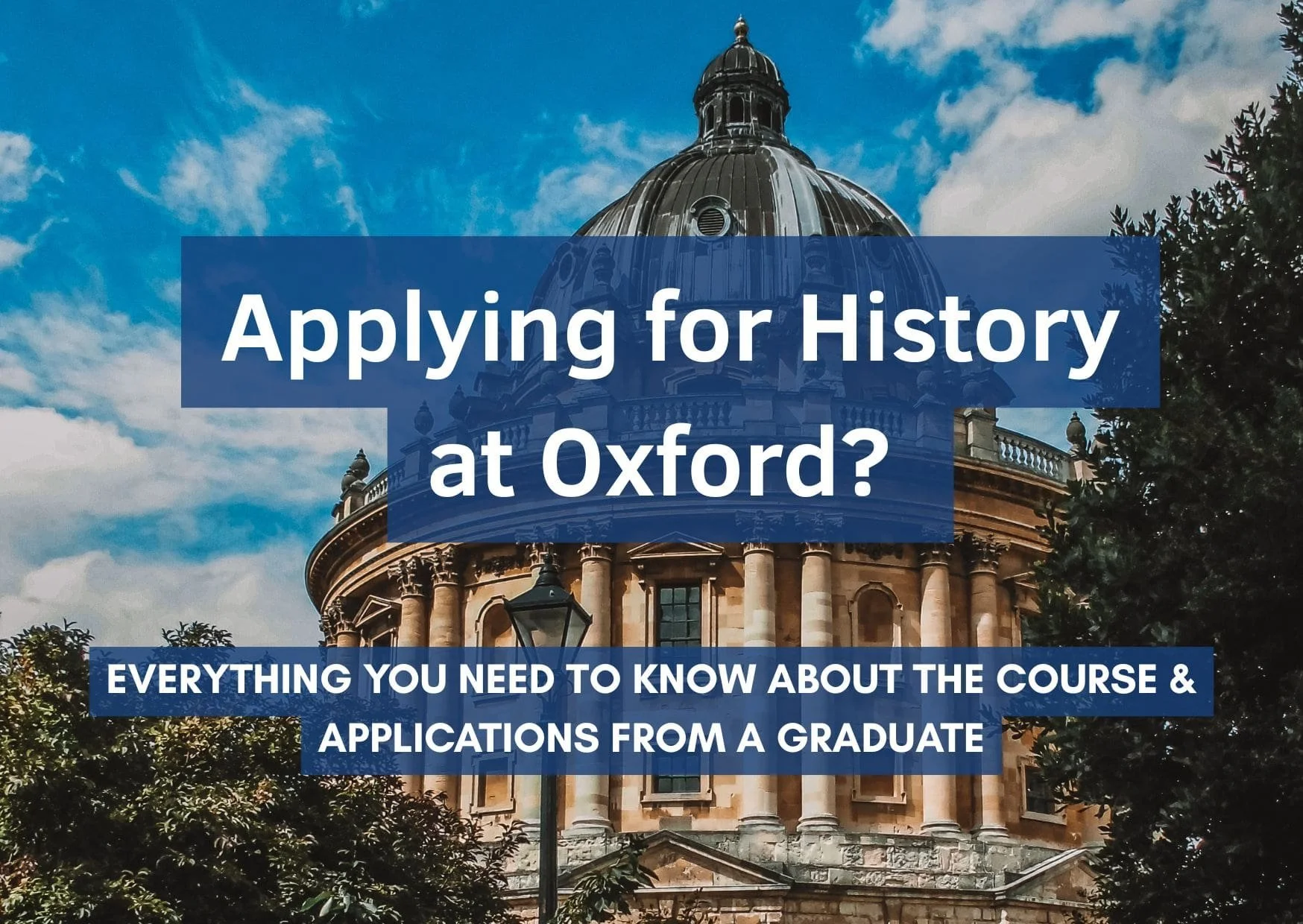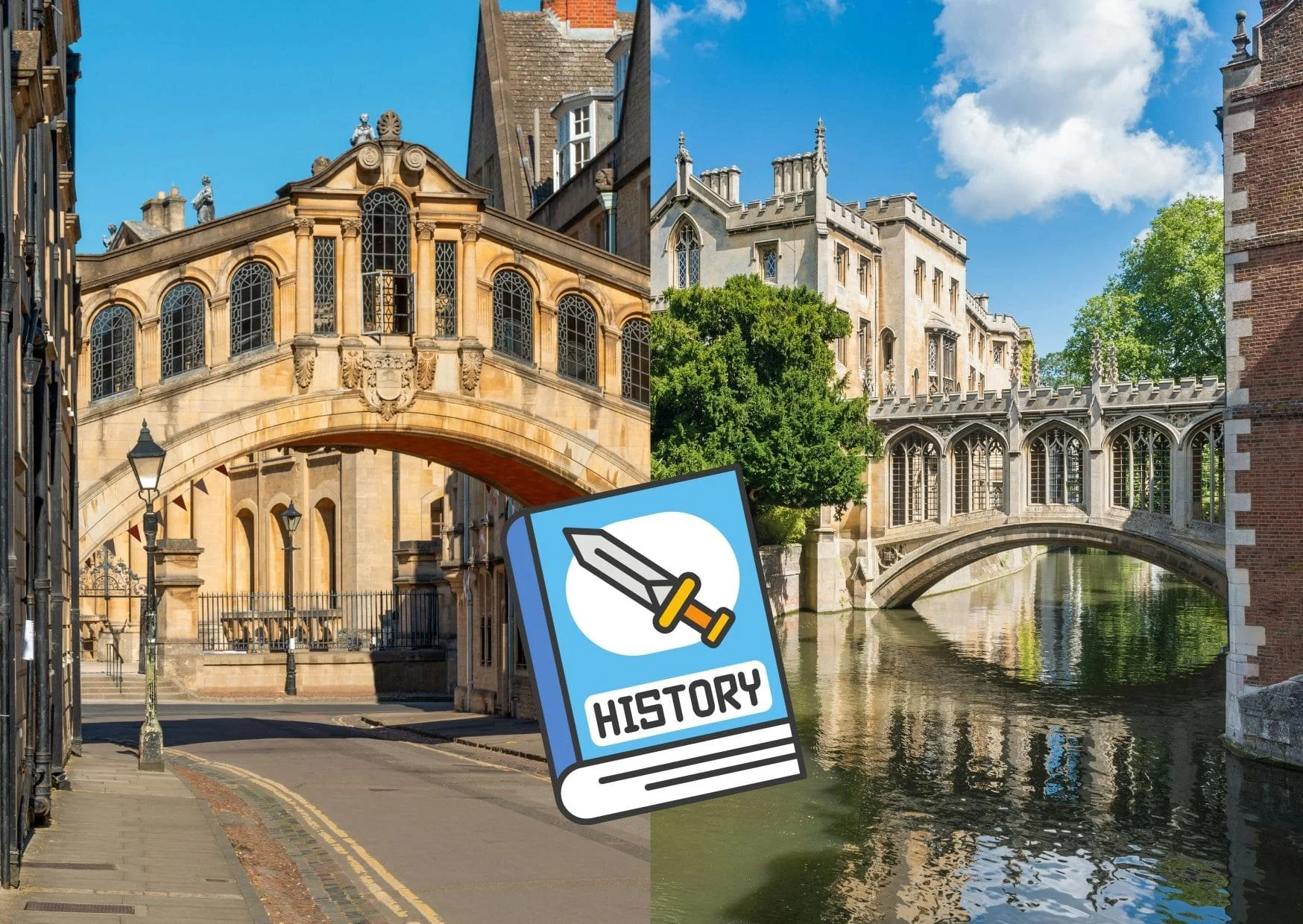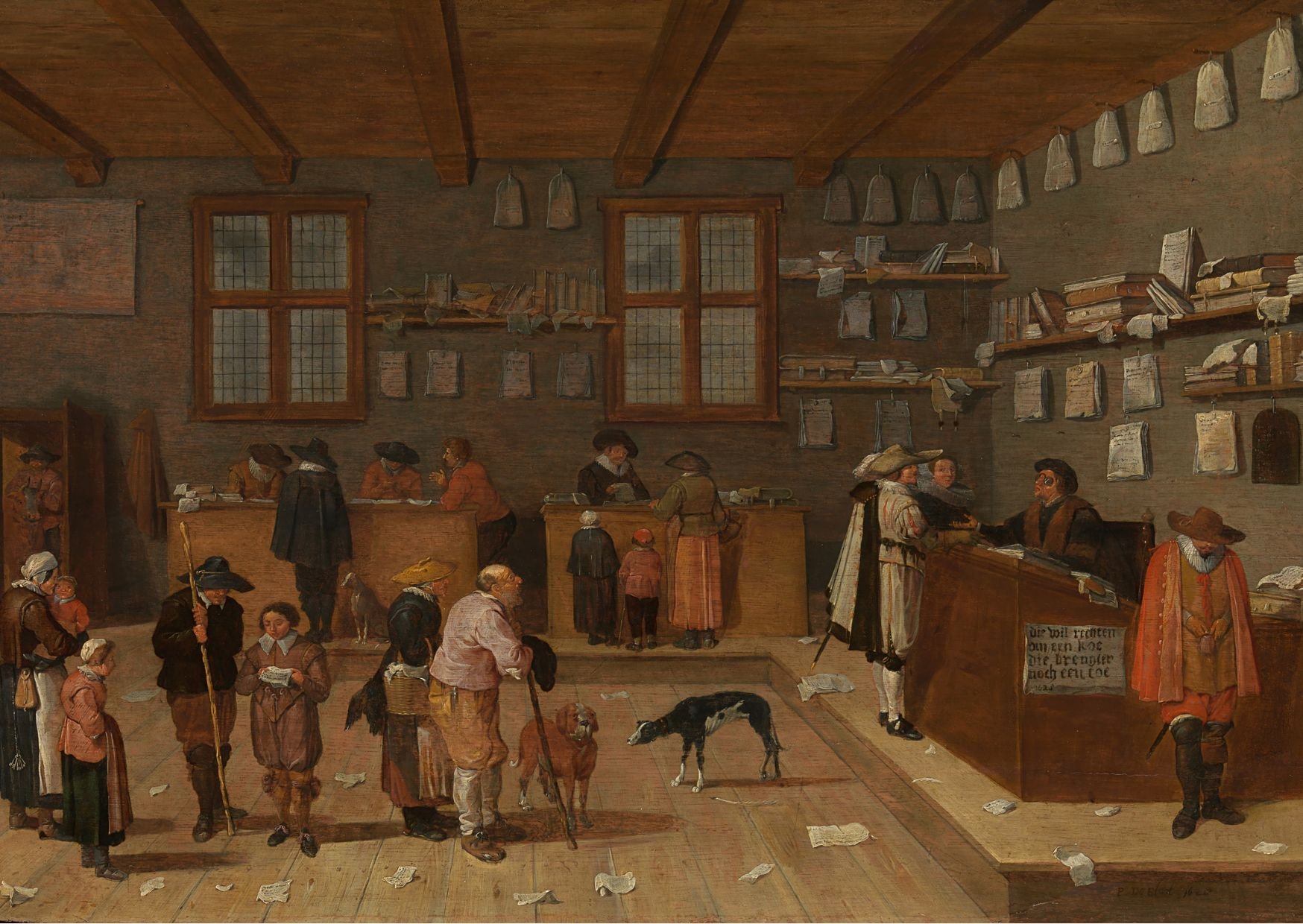Applying for History at Oxford? Everything You Need to Know About the Course & Applications from a Graduate
Whether you’re deciding between Oxford and Cambridge for History, or are set on Oxford and want to learn more about the application process or university life, this article is for you. We break down the interview, the best colleges for History at Oxford, the most thought-provoking modules, and the best places to study, all according to real students. Peppered with advice from a 2024 History graduate, this article and our tutoring are your best bet at a successful application.
Blog Contents
Why Study History at Oxford? How Does Oxford Compare to Cambridge for History?
What’s the application process like, step by step, for Oxford History?
How to Nail the Oxford History Interview: From Someone Who Did
What’s the student experience for Oxford Historians actually like?
Stand Out in Your Oxford History Application with Personalised Tuition from Oxford Graduates
Why Study History at Oxford? How Does Oxford Compare to Cambridge for History?
Oxford possesses one of the largest history departments in the world, with over 150 teaching staff and typically around 1,500 students at any time.
The faculty size ensures that a breadth of topics is represented amongst faculty interests, enabling undergraduates a wider variety of paper choices.
There are over 100 options, from broad geographical regions and papers to deeper dives into groups, periods, and themes. Some papers also involve cross-disciplinary study.
Oxford is known for its history degree, being one of the most applied-to subjects, along with Philosophy and Theology.
This article is focused on the straight History BA, but there are several other subjects that History can be studied alongside at Oxford. Much of what this article covers is relevant to applications for these degrees:
Ancient and Modern History focuses more on ancient history than the BA History course. Students are part of the Classics faculty as well as the History faculty.
History and Economics
History and English
History and Modern Languages
History and Politics.
So why study History at Oxford over History at Cambridge?
Both are extremely prestigious universities and exciting places to study history, full of opportunities.
Though the Complete University Guide 2026 places Cambridge ahead of Oxford for History, others, such as the QS World University Rankings 2025 and the Guardian University League Table, place it above.
Ultimately, though rankings are helpful, other factors, including whether or not your interests are covered in the course content, are a lot more important. Attend an open day to get a better appreciation for the vibe of a place.
When choosing, it’s essential to consider the differences between course content, exam formats, optional modules, specialisms, and universities. This article and our one on studying History at Cambridge are great resources to help ensure your decision is fully informed.
Some key course factors to consider:
Oxford seems to focus more on British and European history than Cambridge, which has a broader variety of papers.
Oxford is also more exam-based, with assessments concentrated at the end of the third year, unlike Cambridge’s larger amount of coursework and more consistent evaluation method.
Still uncertain? At U2 Tuition, we have years of experience mentoring Oxbridge applicants. We can help you make that all-important decision between Oxford and Cambridge and help you choose the right course and college for you. Learn more here.
Which Oxford College is best for History?
Thirty-one colleges accept undergraduates in History, ranging in size, location, facilities, and teaching staff.
Ultimately, each has an excellent history faculty and colleges aren’t advertised as ‘specialising’ in any particular subject. That being said, some factors may enhance your experience studying History there.
A key thing to do is to investigate the fellows and tutors at a college to see if their areas of specialisation fit your interests. Although the faculty arranges papers, your college tutors organise your teaching. Their interests may impact the essays you write for papers, and it may also be easier to get coursework supervision from them.
Some consider Balliol College the best college to study History at Oxford. It has an unprecedented four History fellows and an impressive collection of Historical works. Their large teaching staff covers a broad range of the syllabus, providing students with a breadth of specialism. They boast famous alums from history, including Christopher Hill, E. H. Carr, Dan Snow, and many more.
Some colleges are noteworthy for their impressive archival collections, especially Magdalene and St John’s.
St Peter’s College might be noted for its proximity to the History Faculty Building, where some classes and lectures occur.
Alongside teaching staff, each college varies in size, extra-curriculars offered, accommodation, and other factors—research broadly before deciding. Remember, you can always make an open application if you are unsure.
With graduates from all of the Oxford colleges, we have insider insight into what life is like as a student at these institutions. Our tutors can help you choose the college where you’d be most at home.
What’s the Application Process Like, Step by Step, for Oxford History?
A History application to Oxford involves your personal statement, submitted work, and potentially interviews if successful.
What should be included in an Oxford History Personal Statement?
The new UCAS application format should not scare you; it is just a way of getting more specific about what was always required of personal statements.
Much online advice is severely outdated and should be taken cautiously.
There are no ‘core texts’ or ‘must reads’ that Oxford want you to mention; books like War and Peace, which often get mentioned by online lists and some teachers, are of little help.
Aim to show not that you have tried to read from a canon of old historiography, but rather that you have a curious mind, are asking good questions about history, and are going beyond your curriculum.
Out of date versus classic? A quick search online will tell you that War and Peace, R.J. Evans’ In Defence of History, and E.H. Carr’s What is History? are “must-mention” books. These are, however, often overused, and are typically not well-engaged with in personal statements.
When mentioning resources, aim to discuss what you’ve learned from them, what you might disagree with, and how the books' contexts have shaped these positions. Don’t simply cite works and move on.
The personal statement is a chance to show what has gripped you from your reading and interrogation of history as a discipline, and what areas you are passionate about.
It is also a chance to show how you have broken out of the study of fixed periods in a GCSE or A-Level format and begin to think about history as a discipline.
To do this, perhaps consider questions like:
What might the relative merits and implications of a very long durée periodisation (e.g., 1000 AD to 2000 AD) be compared to studying a single year?
What have been the impacts of dividing history into the study of nation states (e.g., ‘the French Revolution’ or ‘British History ’)?
Is history “just past politics”? Is ‘Eurasia’ a functional historical unit to discuss?
When you talk about something you’ve read or an experience, you should focus on the questions it prompted and your thoughts.
Lastly, never begin with the words ‘from a young age’.
Learn more about our personal statement help:
Our 10 Top Tips for Writing a Standout Oxbridge Personal Statement to Get You an Oxbridge Interview
For even more personalised guidance and drafting help, consider our one-to-one personal statement tuition.
Submitted Work
Oxford History applicants must submit one piece of work, a maximum of 2,000 words (though it can be an extract from a longer work). It should be written in English.
It should be an argument-driven essay on a historical topic. Avoid a source analysis or commentary.
It should have been completed as part of your regular school work, not produced solely for this purpose. You must submit a certificate from your school confirming this is the case.
Remember to include the question the work answers.
The submission deadline is around the beginning of November each year. Check here for your year.
Choosing a piece to submit:
Avoid submitting an essay that lists ‘criterion’; instead, choose one where your definitions suggest a direction or line of attack in your argument.
Ensure it’s a piece you could talk about at length. It will likely be discussed at the interview.
Remember to be open when the essay comes up in the interview discussion. For instance, when preparing, think about how a different definition of a key term in the question, or focusing on a different area, would have led you to different conclusions.
Is There an Assessment?
Previously, students sat an hour-long assessment where they wrote an essay based on a source. It examined comprehension skills rather than historical knowledge.
In 2025, the History Faculty is trialling the removal of the HAT.
Oxford History Interviews
Interviews tend to be in December. The standard format is a 30-minute interview with two tutors, though some colleges split this into two 15-minute interviews with different interviewers.
While interviews can vary from college to college and tutor to tutor, broadly, there will probably be three parts:
Discussion of your submitted essay
Discussion of an element of your personal statement
Discussion of an unseen element
With U2 Tuition, interview prep from real Oxford historians ensures you’ll confidently walk into your interview, boosting your chances of an offer.
To learn more about how our Oxford historians can support you through each stage of the admissions process, book a free 20-minute consultation here:
How to Nail the Oxford History Interview: from Someone Who Did
Tutors aren’t looking for dogmatism or brilliance; they want to see how teachable you are by simulating a tutorial situation.
Tutorials involve learning via discussion and debate, where you can expect your ideas to be scrutinised by academics.
Tutors are interested in how flexible you can respond to new or different interpretations, and how you might extend these propositions or combine them with other ideas.
You must be willing to critically engage with your views, test them, and be open to new viewpoints in the interview.
You should know your personal statement's books, concepts, and viewpoints.
You must have covered what you said you had!
They sometimes ask about these in the context of how these could relate to the discussion you might have had about concepts or new ideas from other parts of the interview.
You should brush up on the core concepts used in your submitted essay and how you defined the terms of your question.
They will likely want to see how flexible you can be when prompting you to consider how applying new or altered concepts to your arguments can change or shape a reconsidered answer.
In your interview preparation, consider comparing your viewpoint to another historical method or analysing how newly discovered information could affect your argument.
They could email you 20 minutes in advance with an attachment for you to read, or ask you to think about a single word or a concept in advance.
You should consider how they might apply this to your essay or personal statement.
For these questions, don’t worry about knowledge; there is no ‘right’ answer. They want to understand how you think, so don’t be afraid to think out loud!
Their questions are designed to push you.
The unseen part can vary a lot.
They might show you an extract from some secondary literature, or it could be a primary source, such as a physical object, a poster, a magazine cover, or a painting.
They want imaginative suggestions and an ability to keep making suggestions, and then consider what you can assume or draw from them.
To prepare for this, I recommend attempting previous HAT papers to practice seeing unfamiliar and challenging sources, and listening to Neil MacGregor’s A History of the World in 100 Objects podcast.
Other questions they may ask could focus on history in a broader context. For example:
Which historical figure would you like to meet and why?
Why does the past matter to our understanding of today?
What can historians not find out about the past?
Don’t be afraid of silence in an interview. Consider the question they’ve asked you and structure your ideas, rather than blurting out a pre-formulated answer that doesn’t fit.
Also, don’t be afraid if you don’t know things. Tutors aren’t expecting you to be an expert on a given period.
Give the answer, and more importantly, the justification you think is right.
Critical analysis, evaluation, and even historical imagination are all things they look for alongside your understanding of concepts and ability to express yourself.
For more expert tips and real interview questions from recent years, consider exploring 1-1 tutoring with our Oxford-educated History tutors. Our tutors also provide in-depth feedback.
We also have an Oxbridge History Interview Pack if you’d like access to more questions to practice.
Finally, in November, we hold Oxbridge mock interview days where students are interviewed separately by three Oxbridge History graduates they haven’t met, to simulate real interview conditions.
How Hard is it to Get Into Oxford for History?
Oxford History degree entry requirements
A-Level AAA, Advanced Highers AA/AAB, IB 38 with 666 at HL.
Oxford highly recommends that students take History at an A-level or equivalent.
There is no set number of 9s or required GCSE grades. GCSE grades tend to point towards potential A-level performance, but these grades are contextualised by the school you attended and any mitigating circumstances, if relevant.
What is the acceptance rate?
An average of 73% of applicants were interviewed, and 23% were offered places between 2022 and 2024.
Cambridge has a slightly higher rate of 1 in 3 offers per applicant
Notably, 2024-2025 saw a higher success rate than previous years. There were 801 applications for BA History, 650 were interviewed, and 227 offers were made, making the success rate 28%.
Using U2 Tuition can help you boost your chances of success for this competitive programme.
How can I Standout as an Oxford History Applicant?
To succeed at an Oxford application, and even a degree, it is imperative that you are both hardworking and love your subject. Demonstrating initiative and curiosity through your application is a sure way to highlight your passion for History.
There are a few key ways to extend your learning beyond the curriculum and demonstrate enthusiasm for your subject:
Books to read for a stellar Oxford History application
In the run-up to writing a personal statement and building up towards the thinking required for an Oxbridge interview, you should be reading and reflecting.
This does not involve memorising but is about reflecting on studying history as a whole and going beyond your A-Level/IB syllabus.
This does not mean you need to become an expert in a period of history, but rather that you should start reflecting on how your entire historical education and historical narratives in your culture have been put together.
Before selecting specific avenues, it would be helpful to pursue a broad range of approaches to history, and then follow up on what you are interested in.
This study of these approaches, or different schools, is known as historiography.
It’s helpful to start engaging critically with these as soon as possible, as they are a significant part of the Oxford and Cambridge History courses.
A good place to start might be considering the different views on why and how a specific historical event started, like the Industrial Revolution or the Cold War.
Questions to help you engage with these schools include:
How do different schools of historical thought develop?
What influences writers?
What was their purpose in writing?
As a quick way of developing an overview of an area you might get more interested in, I would recommend looking at the Oxford Very Short Introduction Series as a way into this, namely:
History: A Very Short Introduction (2000)
Gender History: A Very Short Introduction (2024)
The History of Emotions: A Very Short Introduction (2023)
American Cultural History: A Very Short Introduction (2018).
Another very thought-provoking and recent survey of a wide range of types of history can be found in What is History, Now? (2022).
For further recommendations, check out our History at University Guide: Personal Statement, Reading and Oxbridge Interview Questions.
Museums and Monuments
Museums and monuments are an excellent way to refine your abilities to ask questions about the study and presentation of the past, and can be included in your personal statement.
You don’t necessarily need to visit the British Museum. Local and niche museums can be just as thought-provoking and are often more likely to have something controversial in the decisions of their curator, which makes for discussion.
What you are looking for isn’t the most world-class source of information or exhibit, but rather an experience to challenge and pose questions about.
What do particular objects represent?
What objects are the curators drawing a parallel or a contrast between?
Might there be other ways of grouping a museum’s material?
What kind of narrative is a museum’s existing classification and presentation of objects trying to suggest?
Minds Underground
Our co-curricular division, Minds Underground, can also help you build a stand-out application with tailored enrichment like essay competitions and book clubs designed to make your personal statement shine:
Essay Competitions and Research Projects
These pieces of work give insight into the kind of research and subject exploration you may complete at university.
Not only will you expand your knowledge around a particular area of History, but you can also develop critical analysis, argumentation, and synthesis skills. These are all useful for Oxford interviews and the university more broadly.
Questions are released each November for our Minds Underground History Essay Competition.
For 2025’s competition, the following questions were asked:
Can historical narratives ever be truly objective?
How has the concept of revolution evolved from the French Revolution to modern-day uprisings?
Is the history of empire primarily a story of oppression or progress?
We also support research projects where students produce an extended essay based on guided research. They are supervised for an hour a week over 4-5 weeks by a master’s student, PhD student, or even a professor.
Summer Schools
Our Minds Underground virtual Summer Schools are the perfect opportunity for students to engage in beyond-the-curriculum subject exploration.
They are seminar-style sessions led by Oxbridge graduates that aim to replicate the level and style of first-year undergraduate study.
They feature challenging academic material tailored to recent Oxford History interview themes, insightful discussion, personal statement content, interview material, and development of high-level skills, including debate and critical thinking.
There’s also a dedicated session to university application preparation, covering all you need to know about Oxbridge admissions more broadly.
Our summer schools are an invaluable way to demonstrate your passion for history, not least because they provide guidance for further independent exploration through reading lists and recommended questions.
For more information about our History summer school, see here. Or check out the other 23+ subjects we have on offer.
What can You Expect to Learn as an Oxford History student?
Historiographical debate is a key focus of the Oxford course.
Papers cover all parts of British and European history and options on other global areas.
First Year
Students take four papers that are examined at the end of that year in preliminary examinations. The results of these do not go toward your final degree classification.
History of the British Isles
European and world history
Historiographical methods
Students can choose from a few paper options for this.
Approaches to History; Historiography: Tacitus to Weber; Quantification in History; one of several foreign text papers.
Optional Subject
Each year, there tend to be around 20 papers to choose from.
Some previous options have included Theories of the State: Conquest and Colonisation, and Haiti and Louisiana: The Problem of Revolution in the Age of Slavery.
Second and Third Year
Students take six papers.
These are examined via five exams at the end of the third year, and two pieces of coursework: one extended essay (this subject is also examined by one of the five papers) and one thesis. Sometimes, students may take an additional dissertation instead of an exam.
History of the British Isles
European and world history
Further subject
Choice of around 35 papers.
In previous years, this has included The Crusades, c. 1095-1291 and Culture, Politics and Identity in Cold War Europe, 1945–68.
Special Subject
This is examined via a paper and an extended essay.
There tend to be around 30 topics to choose from.
Previous years have included On the Road to Baghdad (892–1055); Politics, art and culture in the Italian Renaissance, Venice and Florence, c1475–1525; The Northern Ireland troubles, 1965–85.
Disciplines of History
This paper invites you to draw upon and reflect on all the knowledge you’ve learnt across the course to consider the processes of making historical comparisons and arguments.
Thesis
What’s the Student Experience for Oxford Historians Actually Like?
It’s no secret that an Oxford degree in any discipline is arduous work. However, the personalisation of teaching, feedback, and the quality of staff and resources make it worthwhile for those who genuinely love the subject.
Teaching format and workload:
You are essentially self-employed: Minimal contact hours include lectures, classes, and tutorials. Most of the work is down to you, choosing what to read, based on a reading list, writing an essay on a question set by your tutor, and then attending the tutorial.
Tutorials last about an hour with your tutor and one or two other students. You may have one or two a week.
There tend to be five lectures a week in the first year.
Second and third years also attend faculty classes. These are seminars where work or reading is discussed.
The tutorial will require you to engage with the arguments you’ve thought up, stating your case, and debating them. They are highly personalised and quite challenging.
You’re expected to spend about 40 hours of work a week, though this will vary per student.
Few contact hours require you to be disciplined with your time, confident with independent work, and a self-starter is essential.
Note-taking skills are imperative. Oxbridge provides support with study skills classes.
Libraries and other places to study:
Oxford offers historians a wealth of archival material beyond most universities’ capabilities. Their libraries are also some of the most beautiful in the world.
The Bodleian Libraries are a collection of university libraries, many of which are helpful for History:
The Radcliffe Camera library is an impressive architectural feat, home to the extensive history faculty book collection.
Art, Archaeology, and Ancient World Library.
The Weston Library is home to the special collections items of the Bodleian Libraries. These include rare books, manuscripts, archives, and much more, which are helpful for historical research.
Alongside studying in these beautiful libraries, many students benefit from Oxford’s plethora of coffee shops, from Common Ground and Coffeesmith to the Society Café or the Missing Bean. If you fancy ice cream, an Oxford institution, G&D’s is the place to go.
What can You Do With a History degree from Oxford?
The career possibilities are limitless thanks to the bountiful transferable skills you develop as a Historian at Oxford.
Students become academics, lawyers, public servants, journalists, broadcasters, curators, and more.
History can be a very high-paying degree; many firms value the critical analysis and argumentation skills and the work ethic that an Oxford degree endows you with.
Many become lawyers as a lot of Oxford teaching is about developing the skill to argue a point nuancedly with supporting evidence effectively.
At U2, we help you make informed decisions about your A-level subjects, university, and course choices, aligning them with your long-term academic and career goals.
Our Oxford-educated History tutors have pursued a wide range of careers, proving the versatility of an Oxford History degree.
Standout in Your Oxford History Application with Personalised Tuition from Oxford Graduates
At U2, alongside our wide range of extracurricular subject exploration opportunities at Minds Underground, we offer bespoke admissions support from Oxford-educated History tutors who know exactly what it takes to succeed.
They’ve studied History at Oxford themselves, so they bring the expertise and are passionate about helping you confidently navigate the application process.
Here’s how we can help you craft a standout Oxford History application:
Course, university, and college choice: We’ll help you choose the right History course and Oxford college to suit your interests, strengths, and ambitions.
Expert tutoring from Oxford History graduates: Receive one-to-one guidance from a tutor who has studied your course at your target college. This insider insight can make all the difference.
Personal statement support: From curating reading lists and shaping your academic narrative to reviewing and refining your drafts, we’ll help you produce a compelling personal statement.
Submitted Work Review: While we can’t help you write your submitted work, we can review your options and ensure you submit one that best showcases your strengths and passions. We can also guide you to further reading and exploration to ensure you’re prepared for questions you may get about it at the interview.
Interview coaching: Prepare through regular sessions and our highly successful mock interview days, designed to mirror the Oxford interview experience as closely as possible.
Flexible, tailored tutoring: Choose online, in-person (where possible), or hybrid sessions, whatever works best for your schedule.
Book a free 20-minute consultation today to learn how we can support you on every step of your Oxford History journey.







